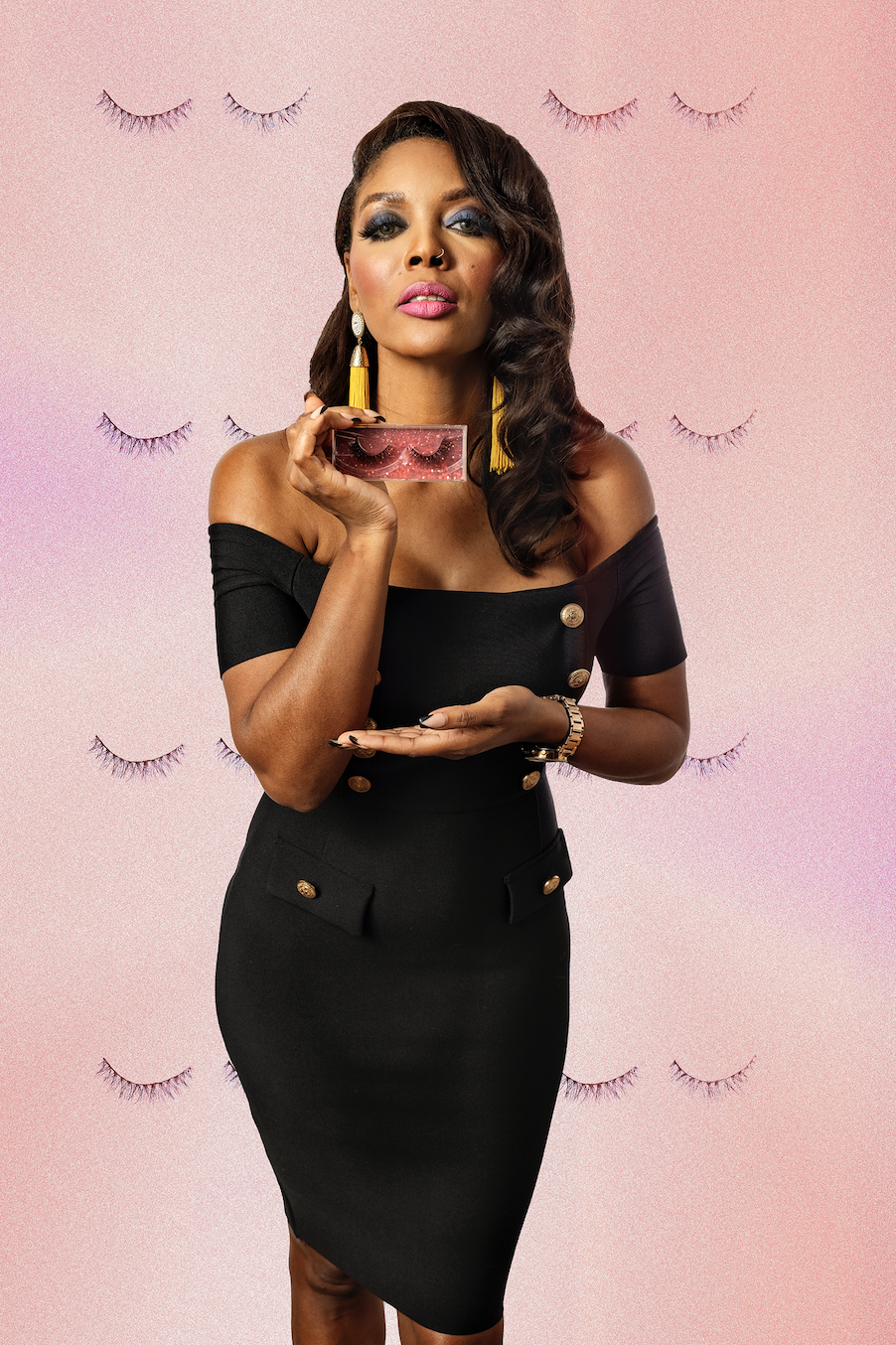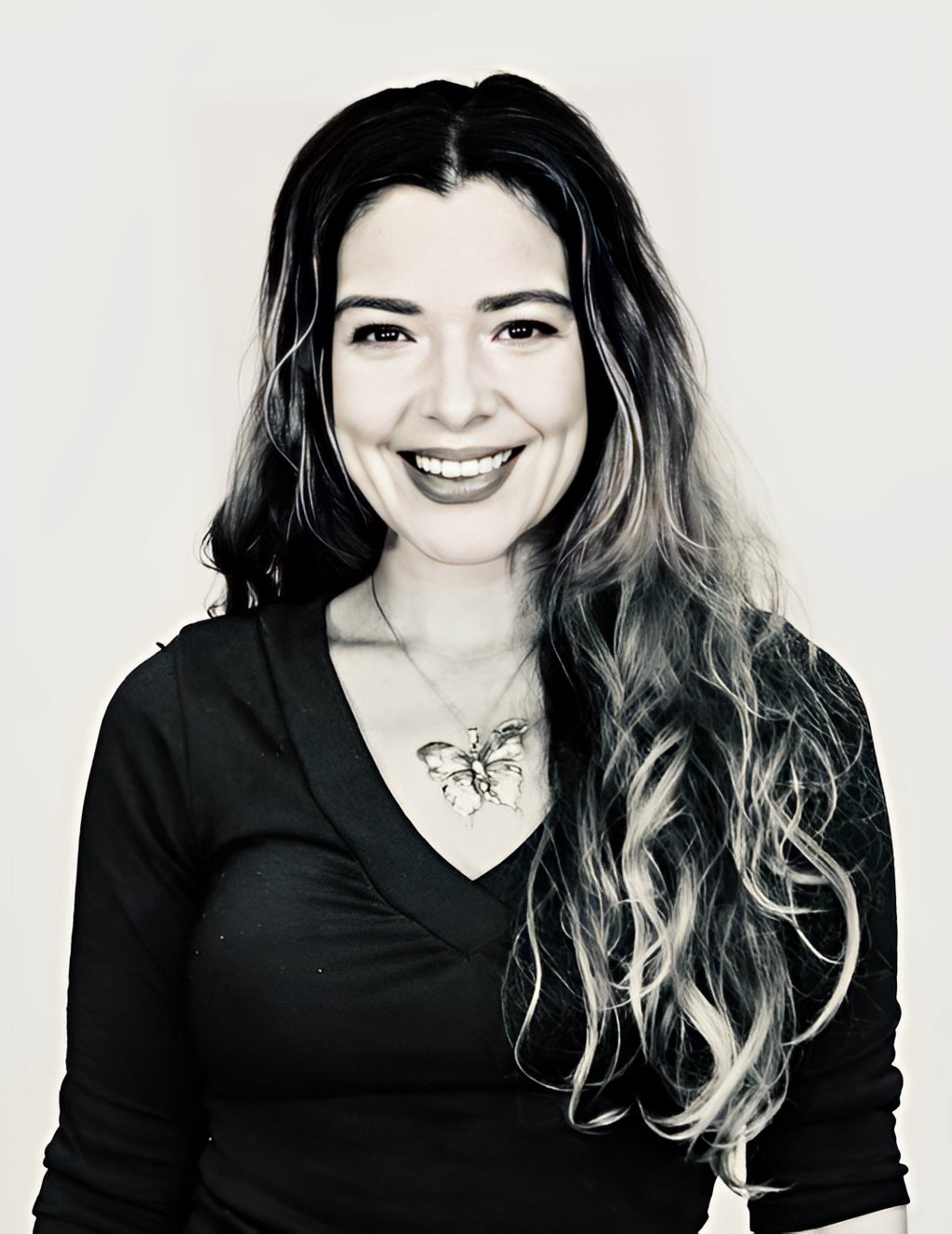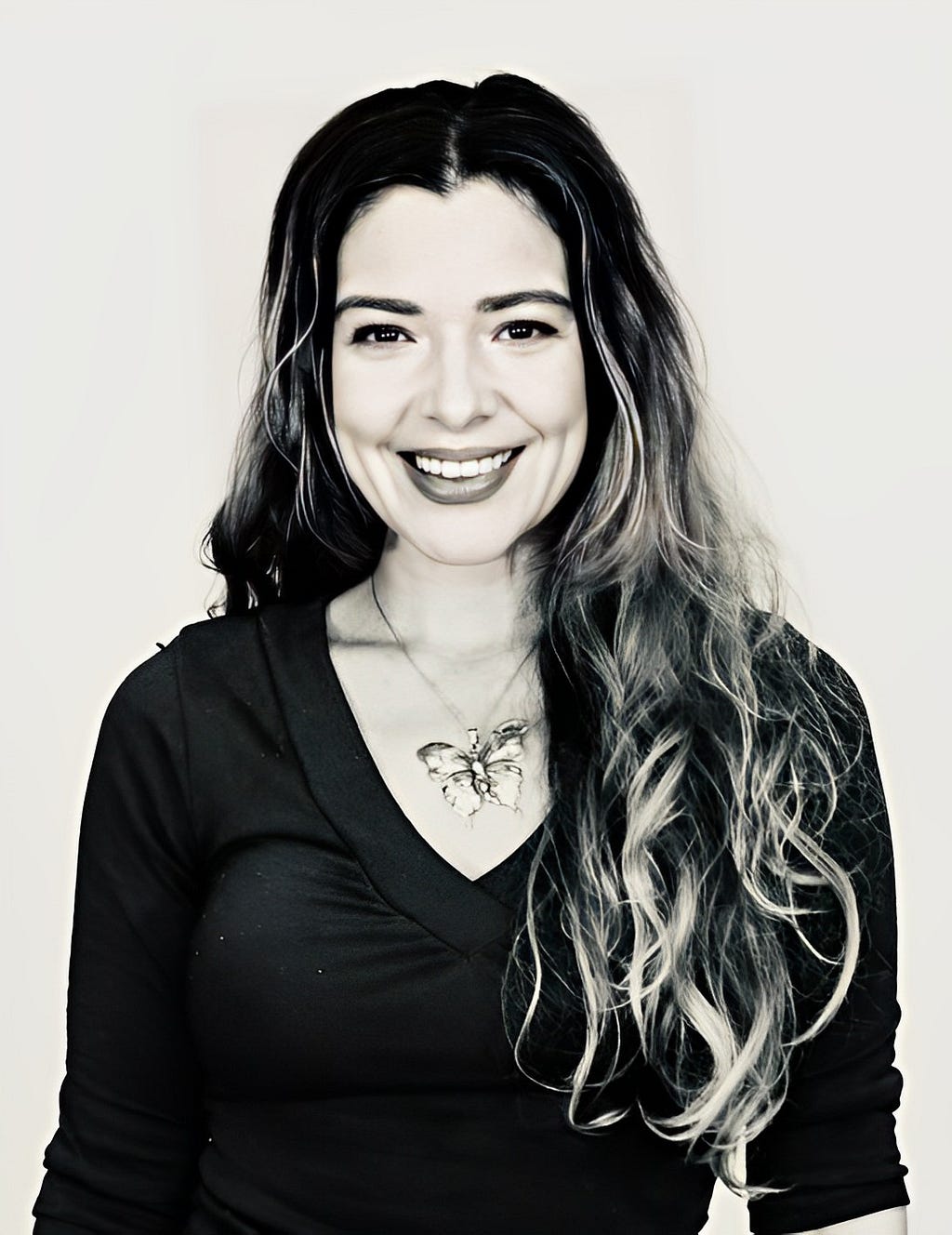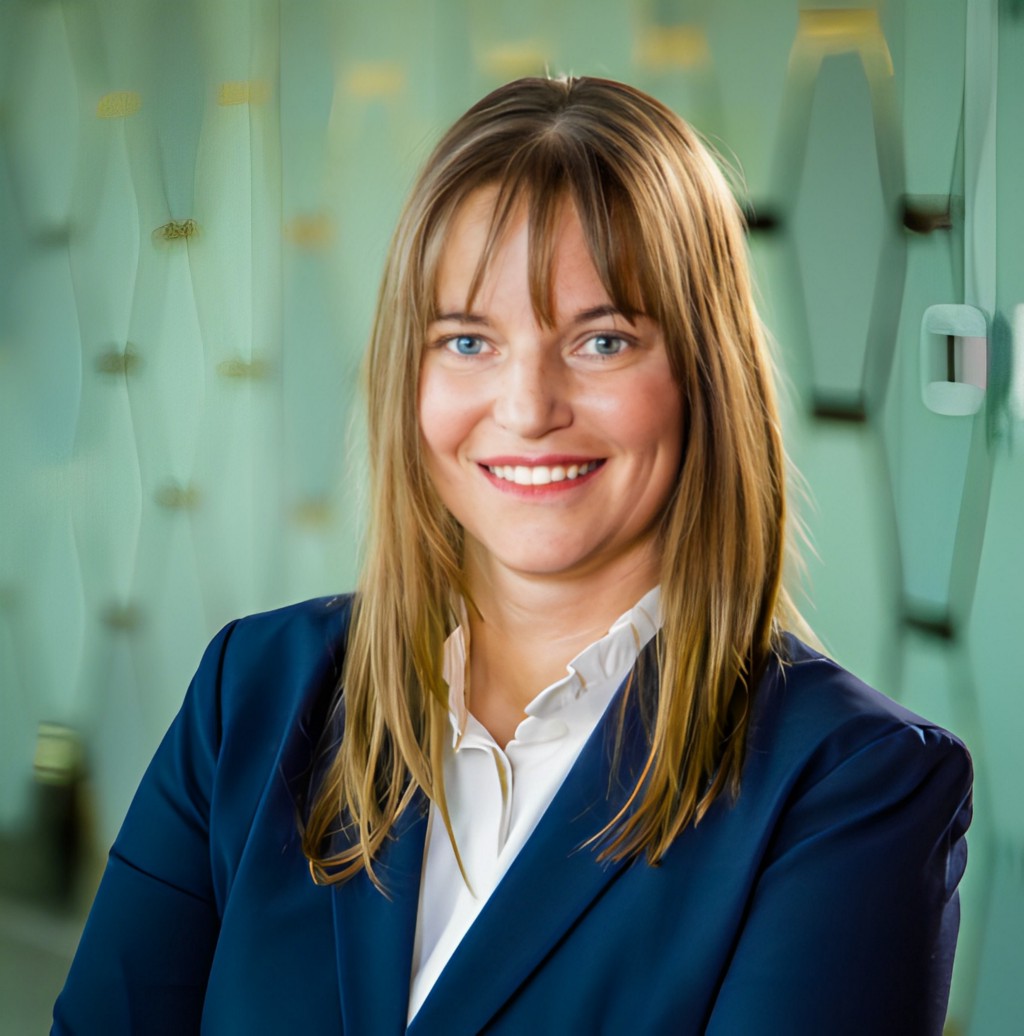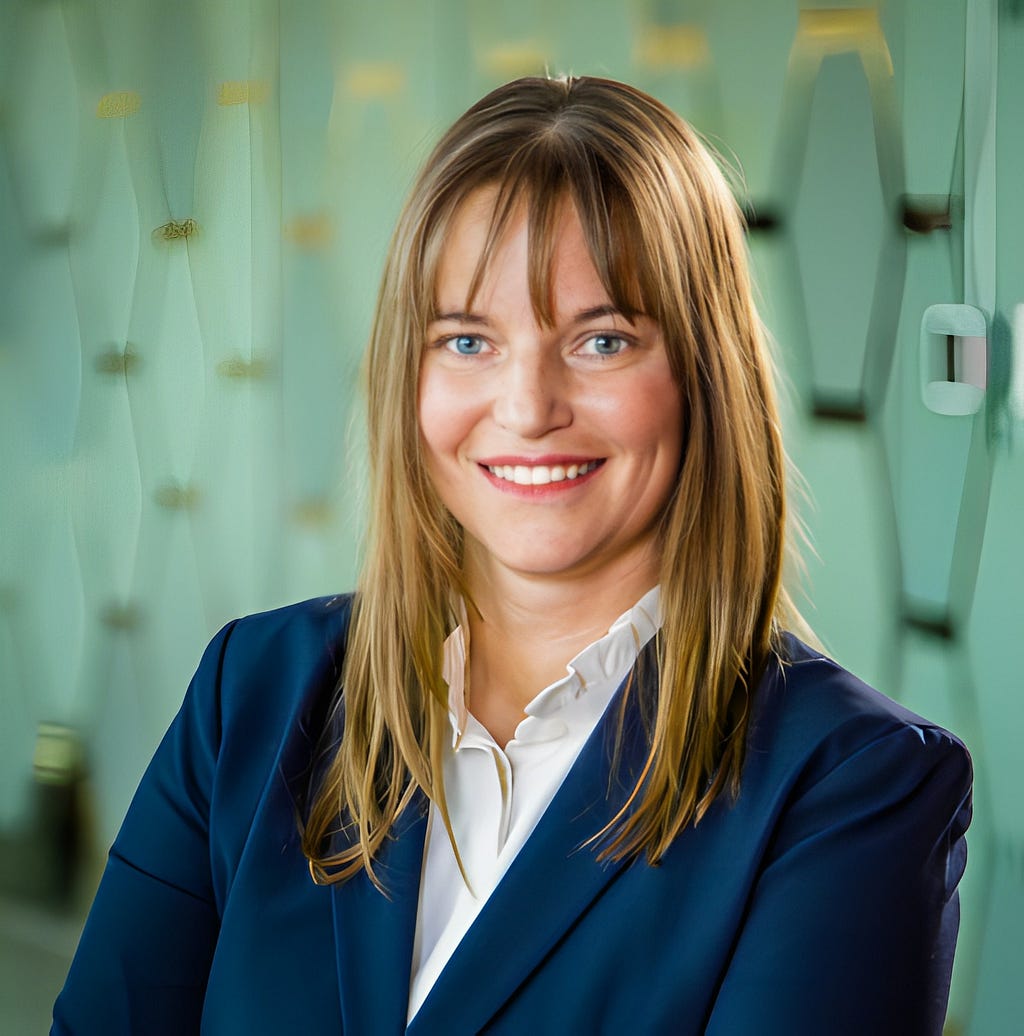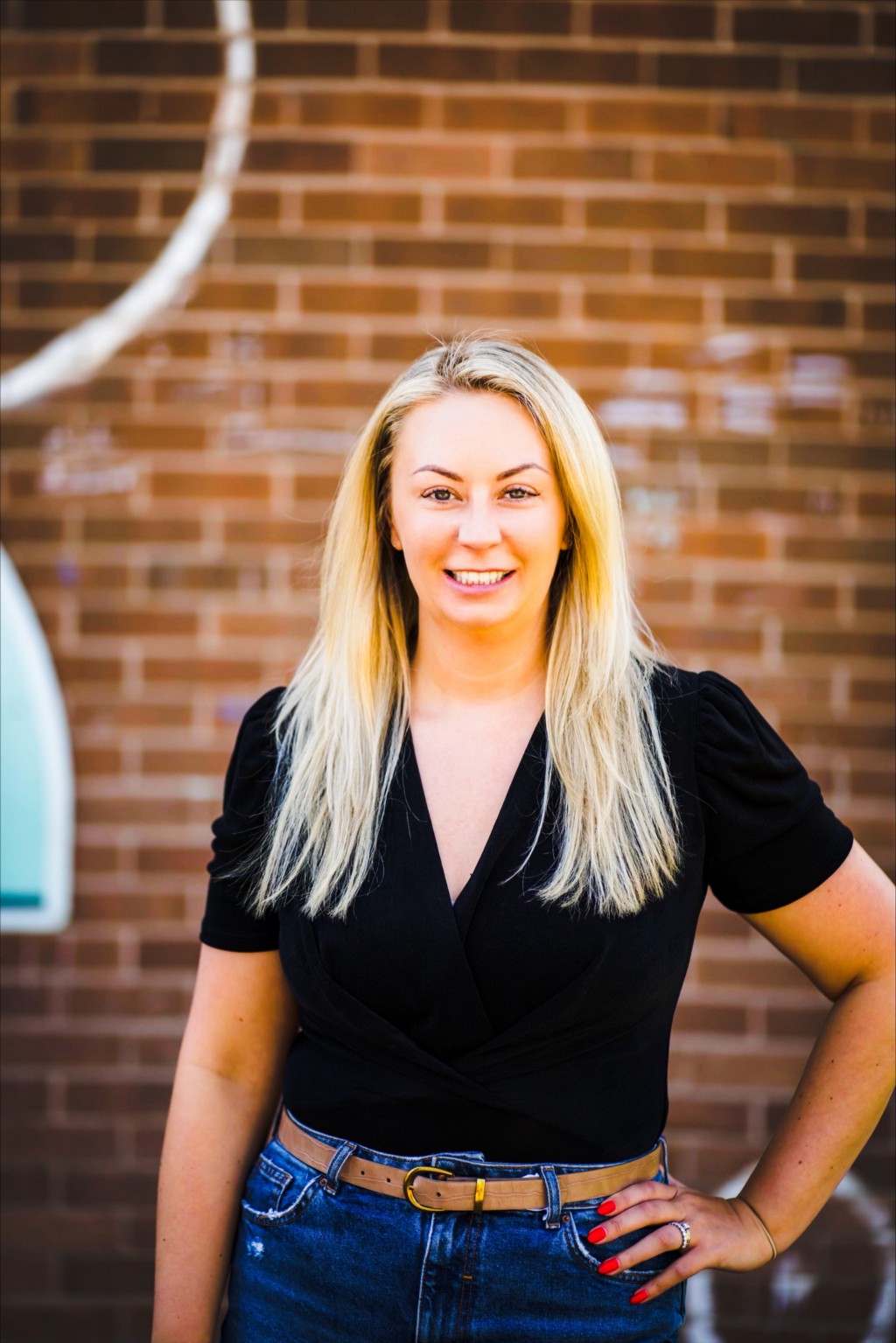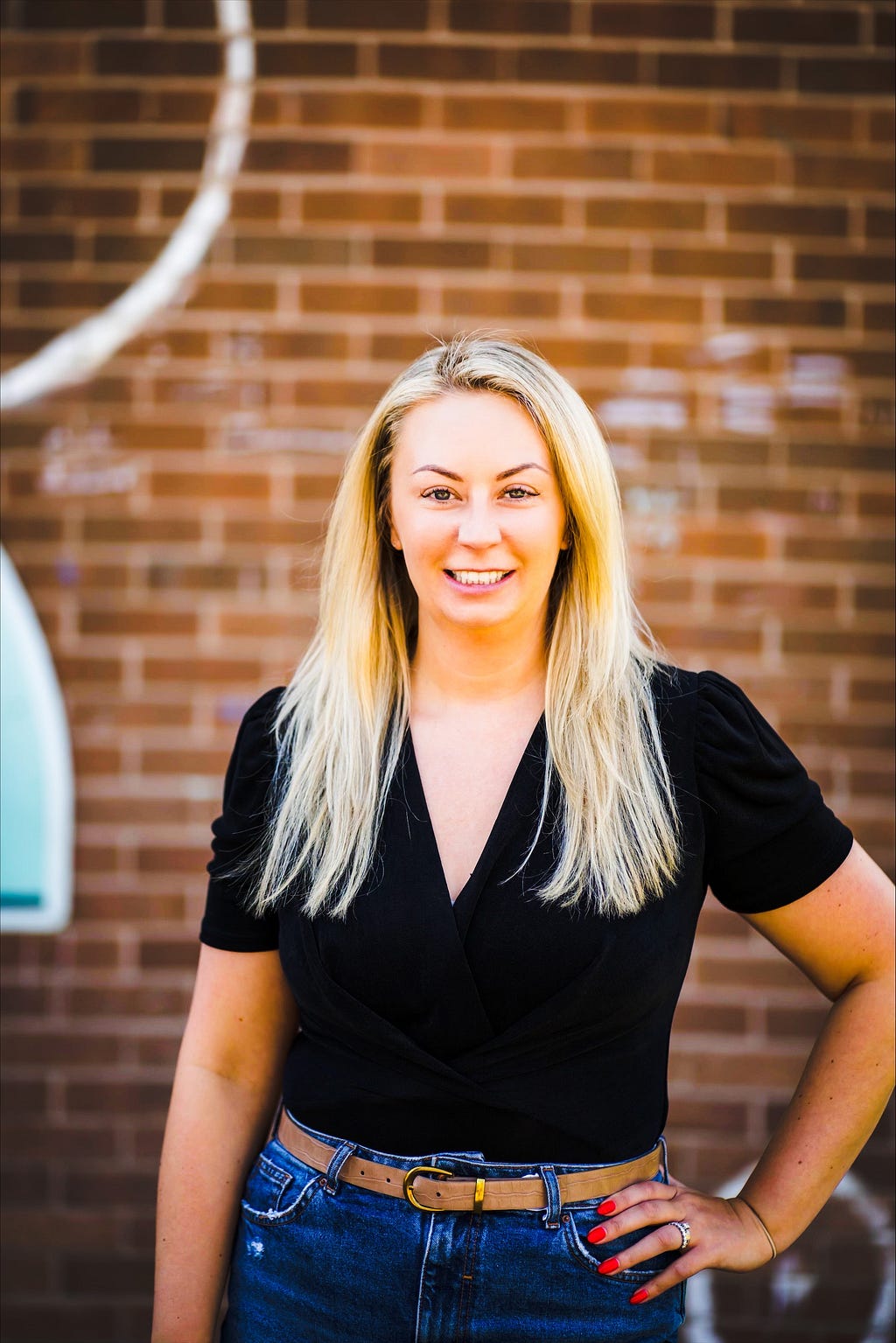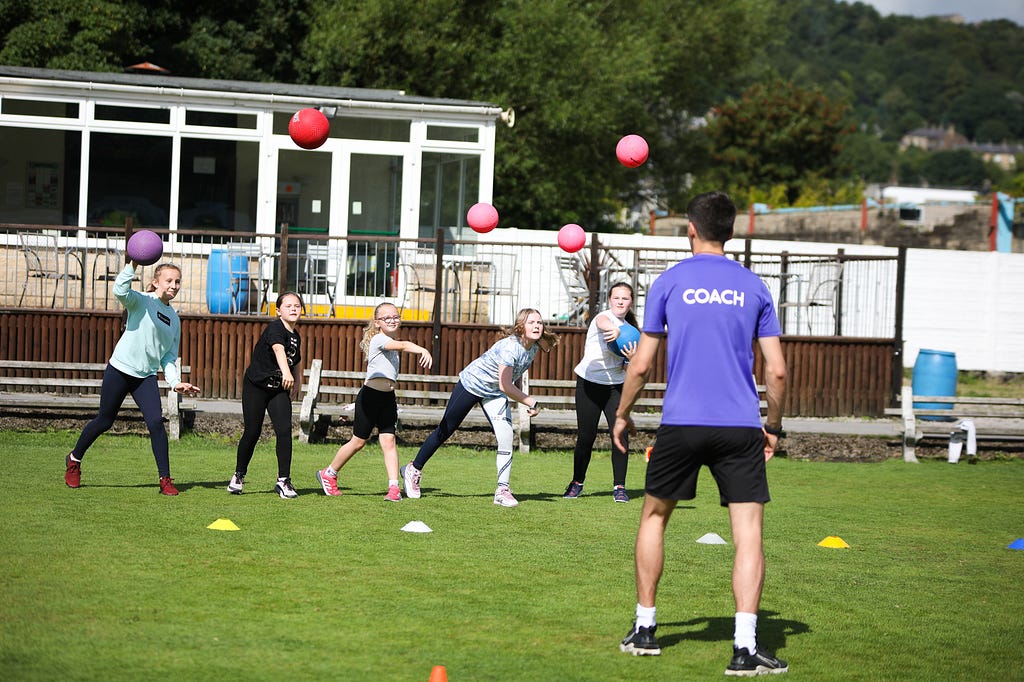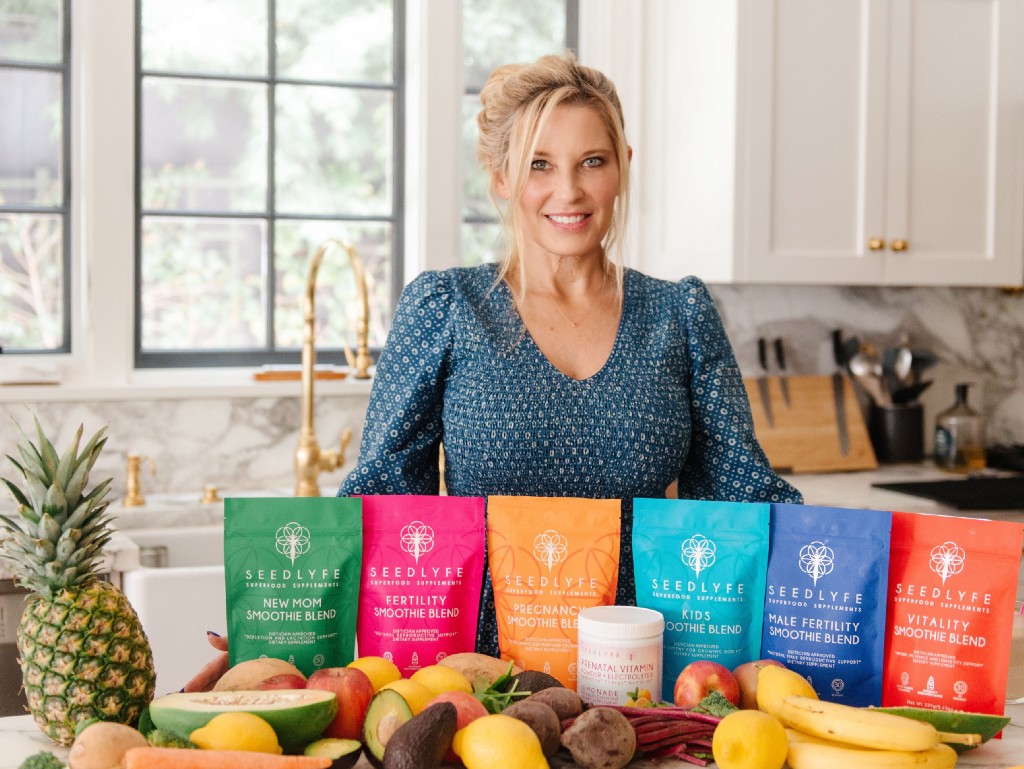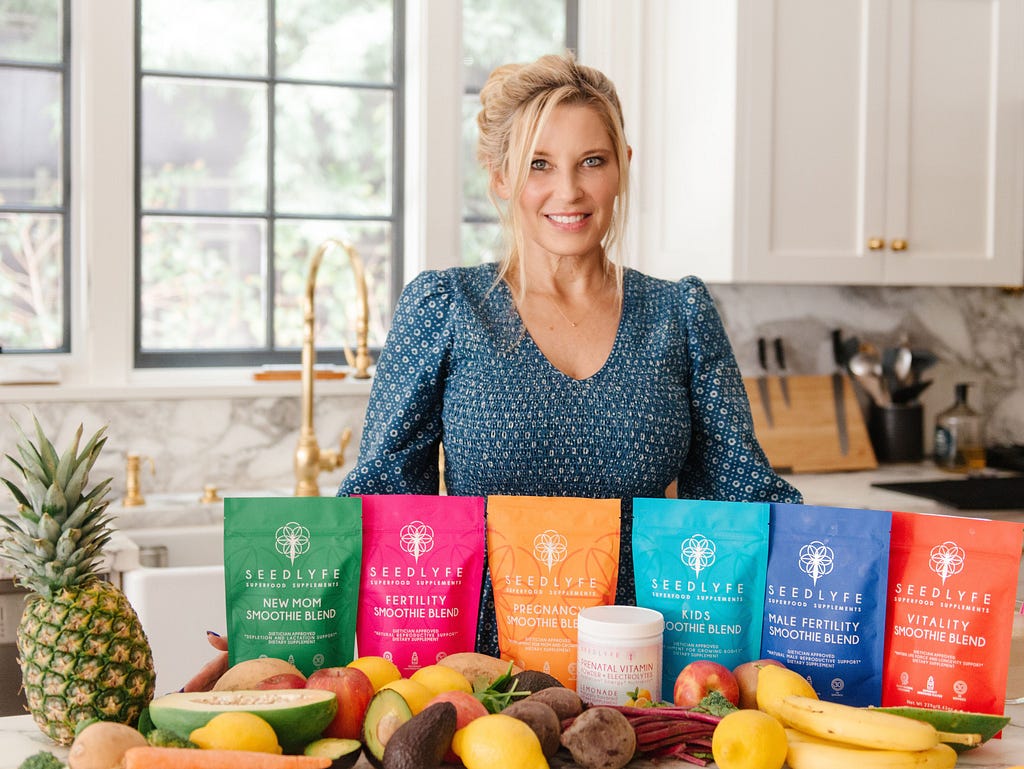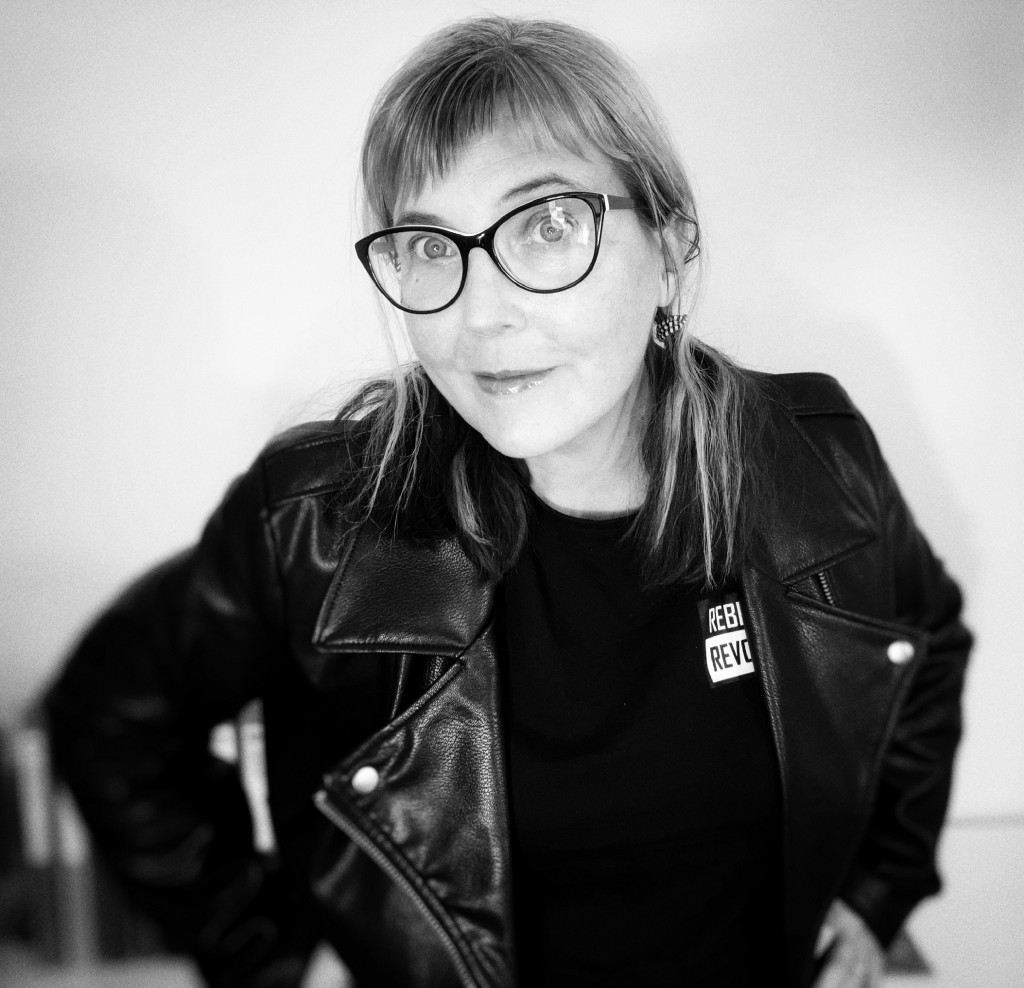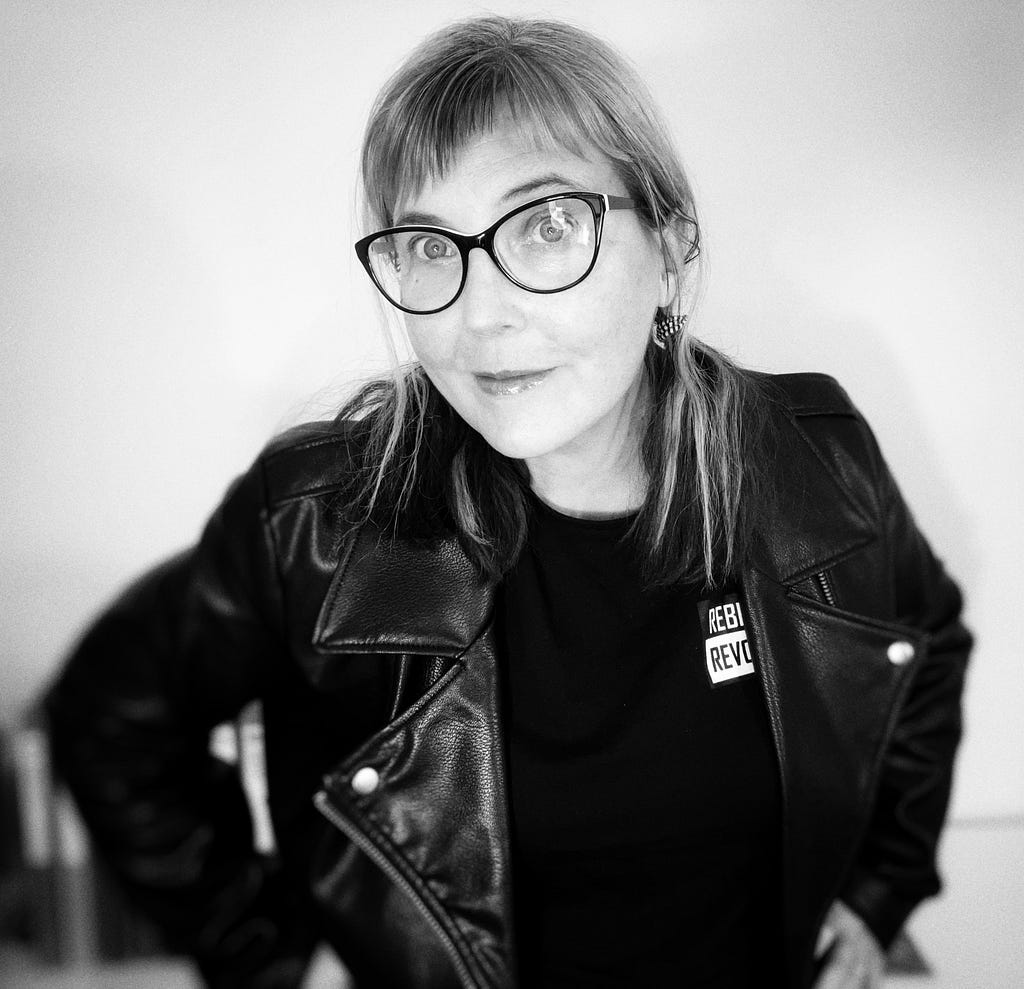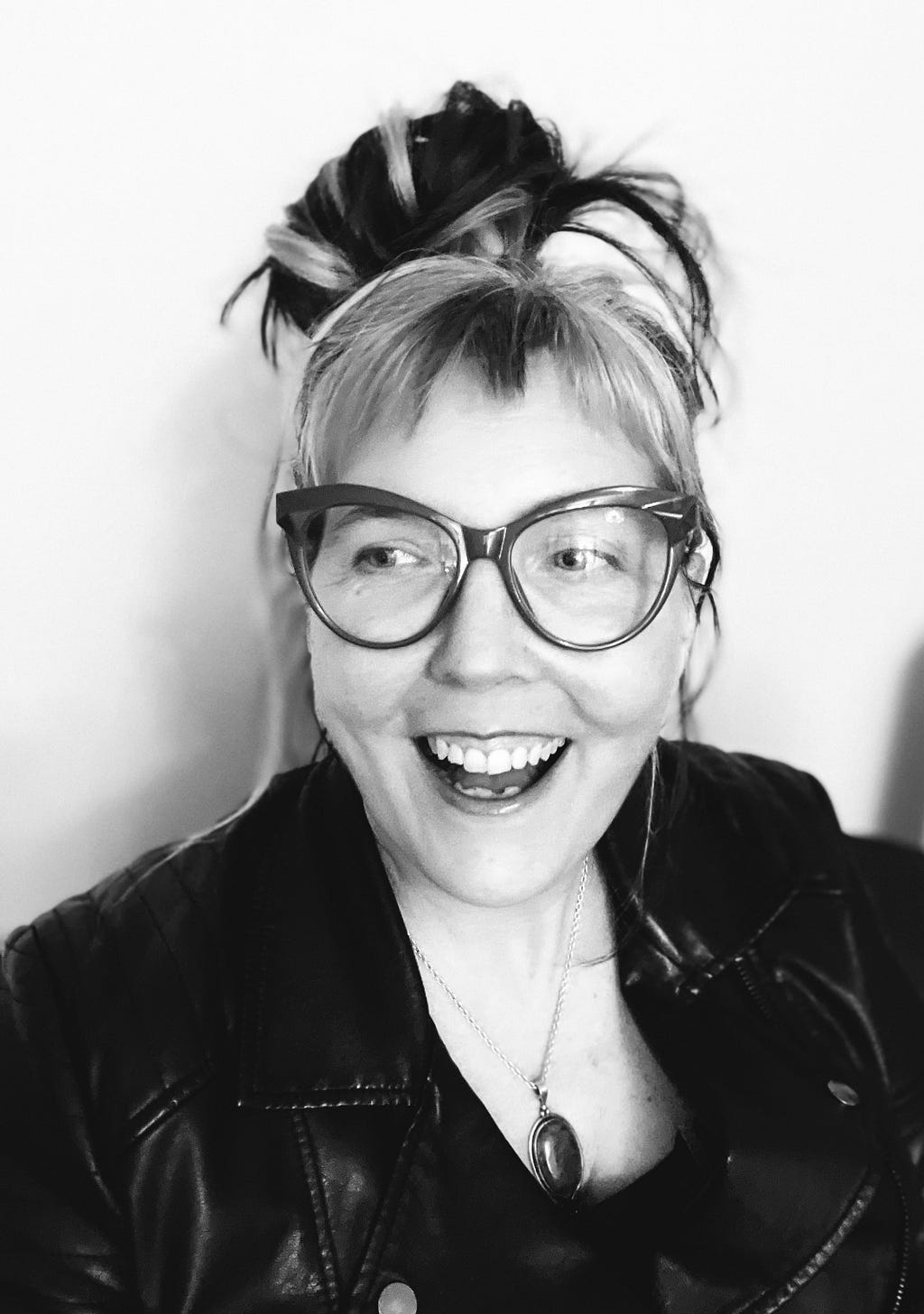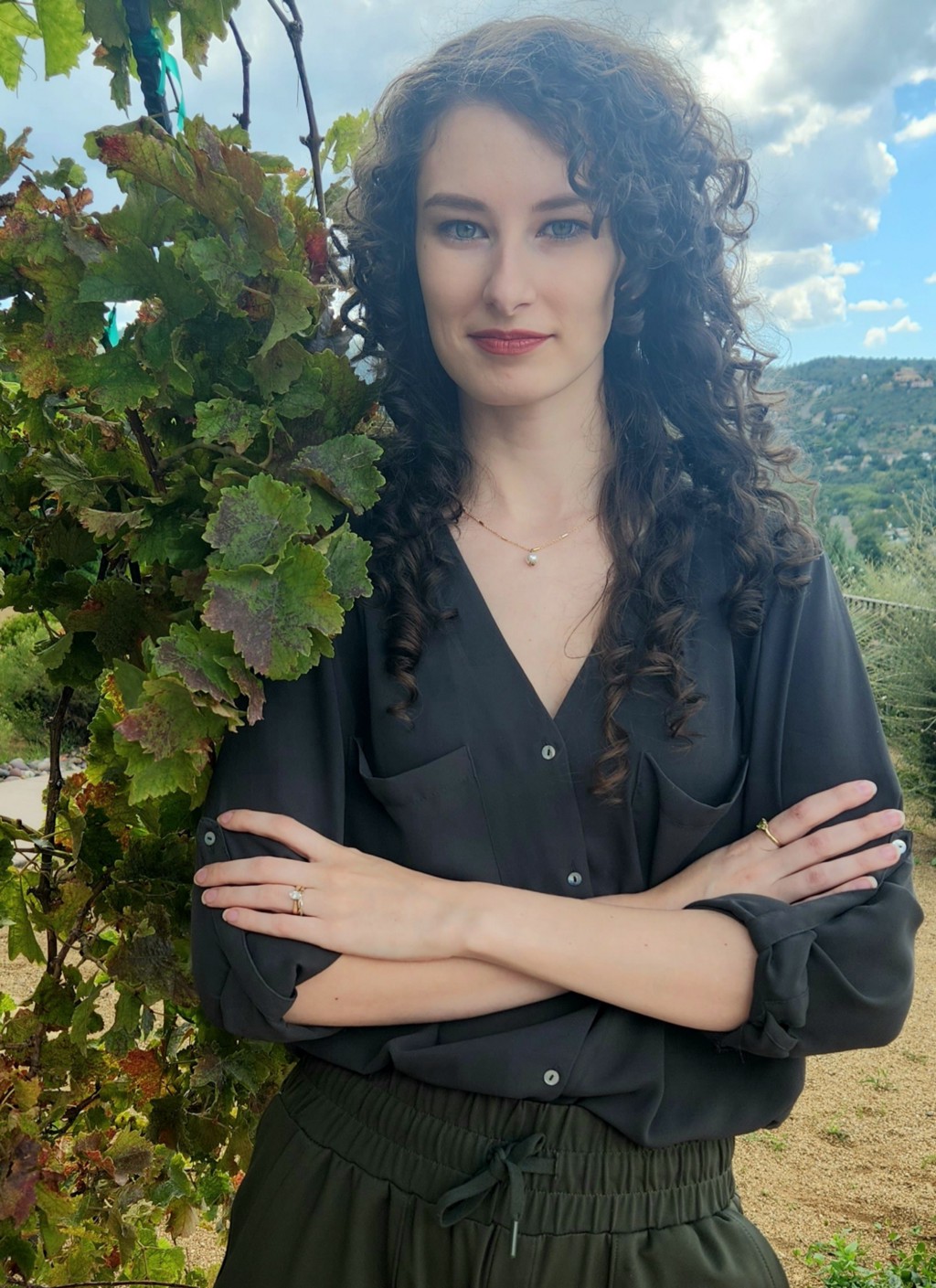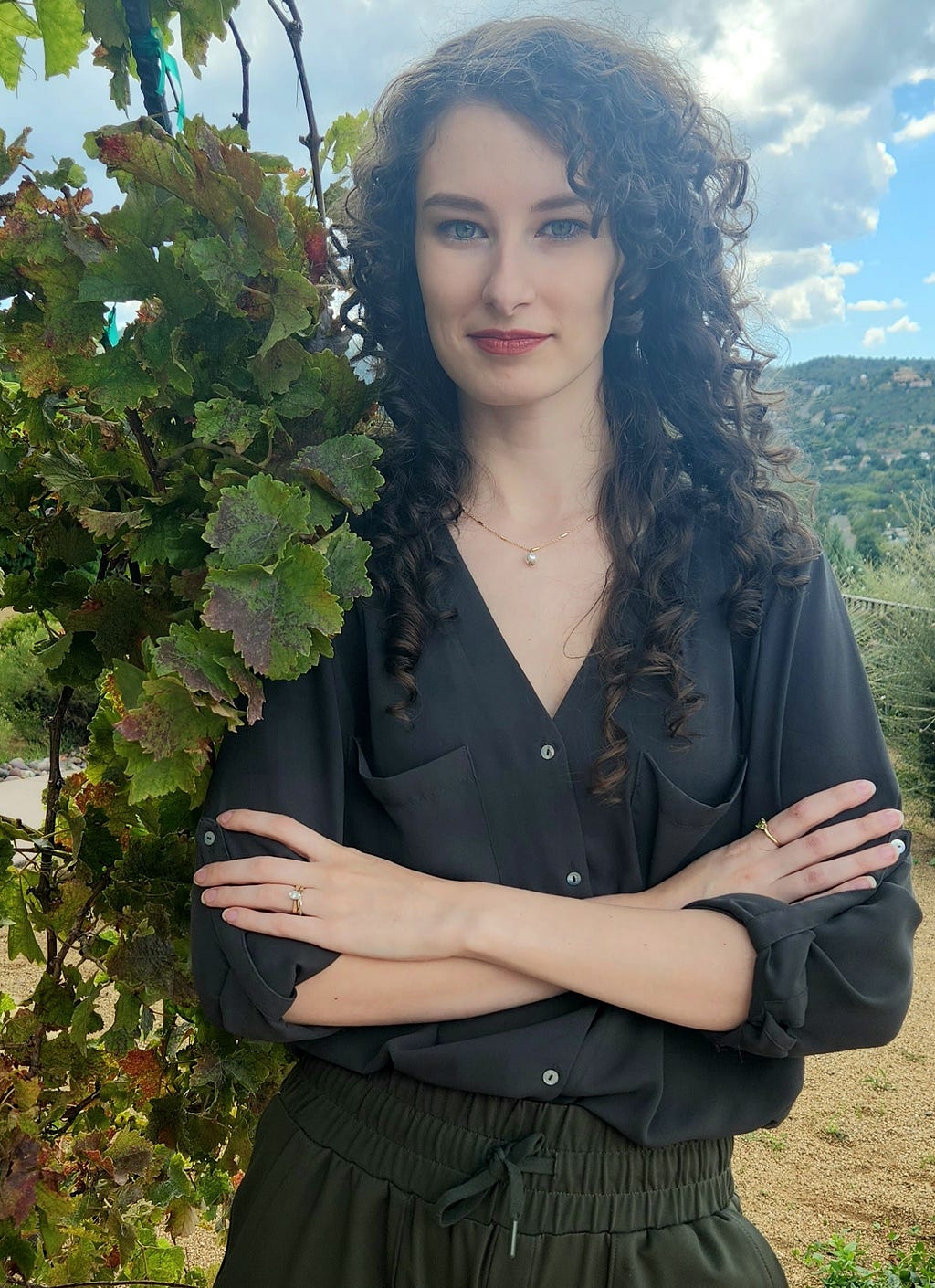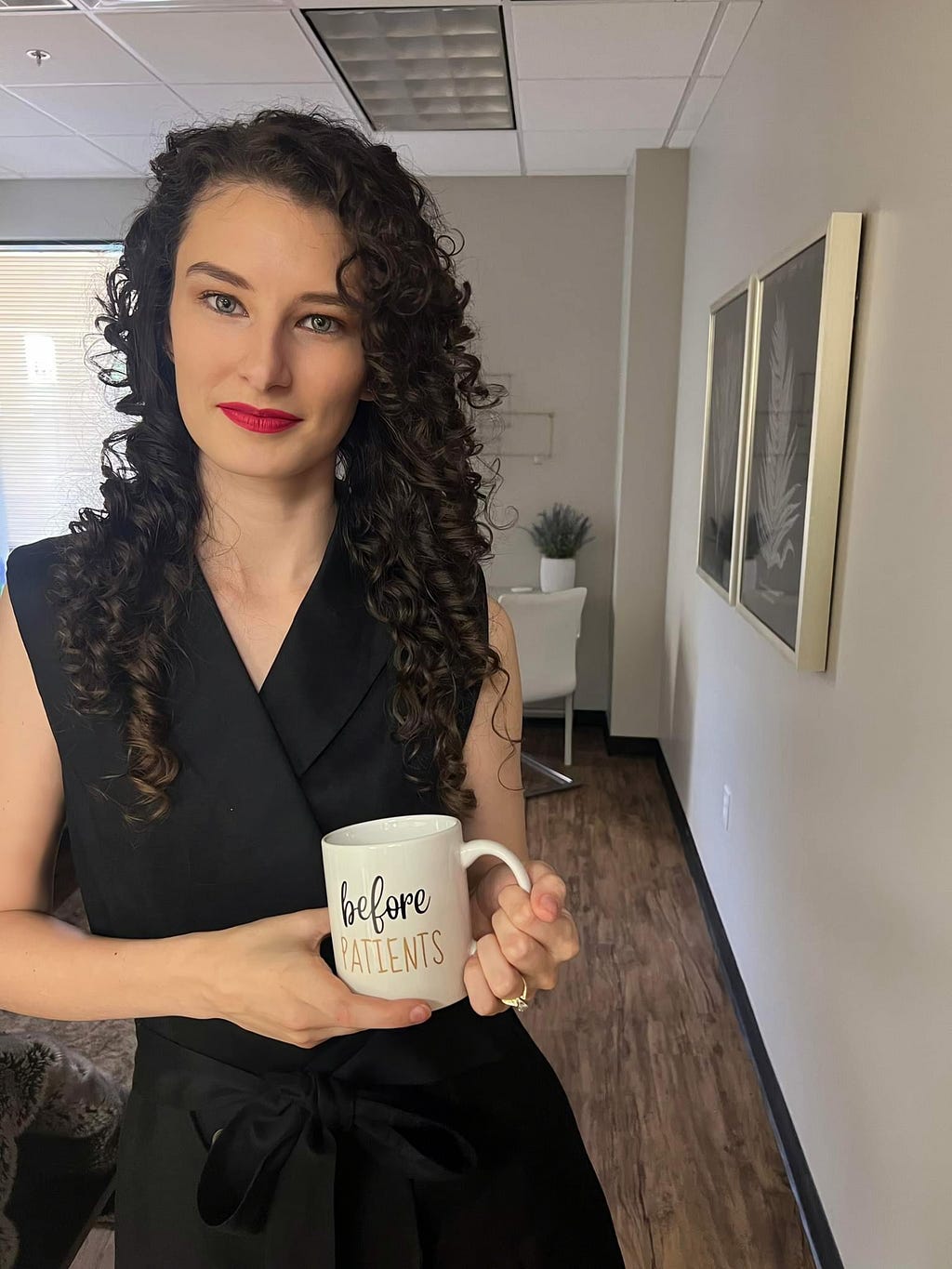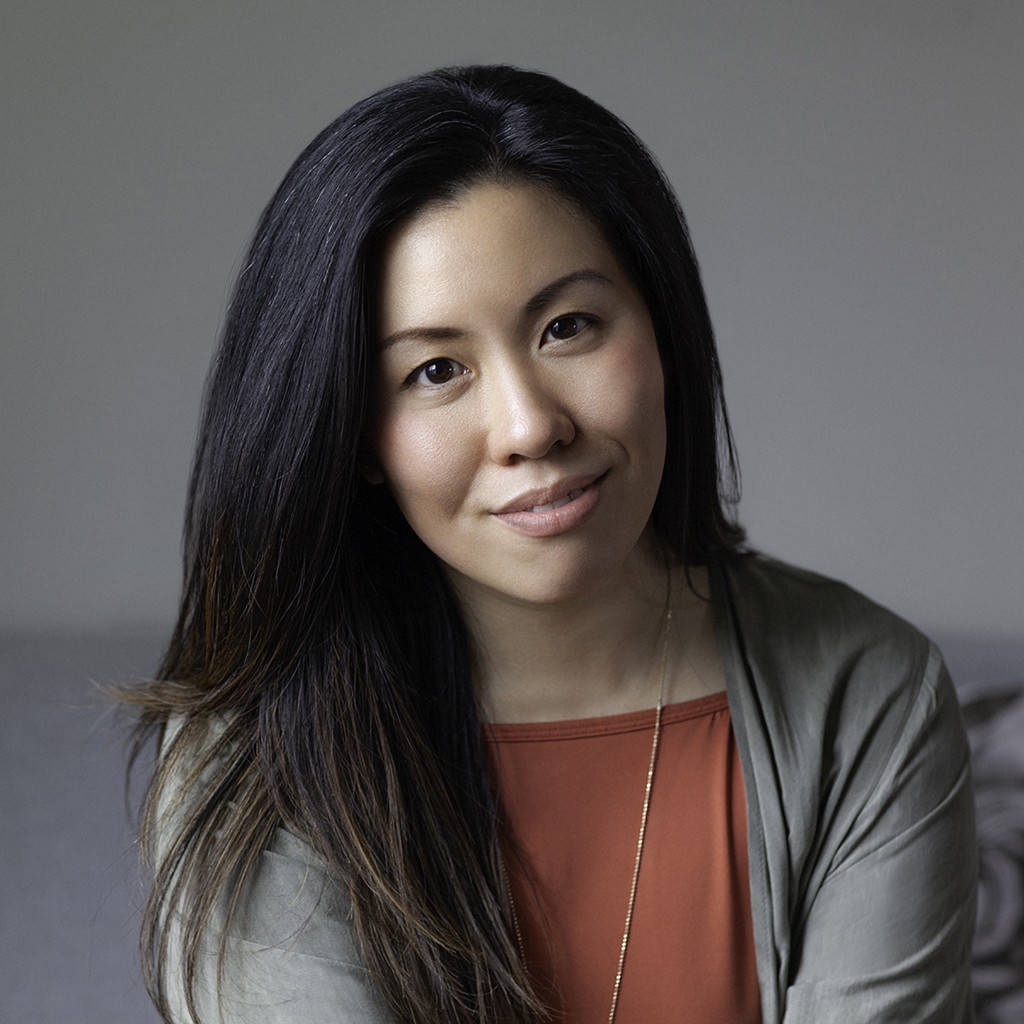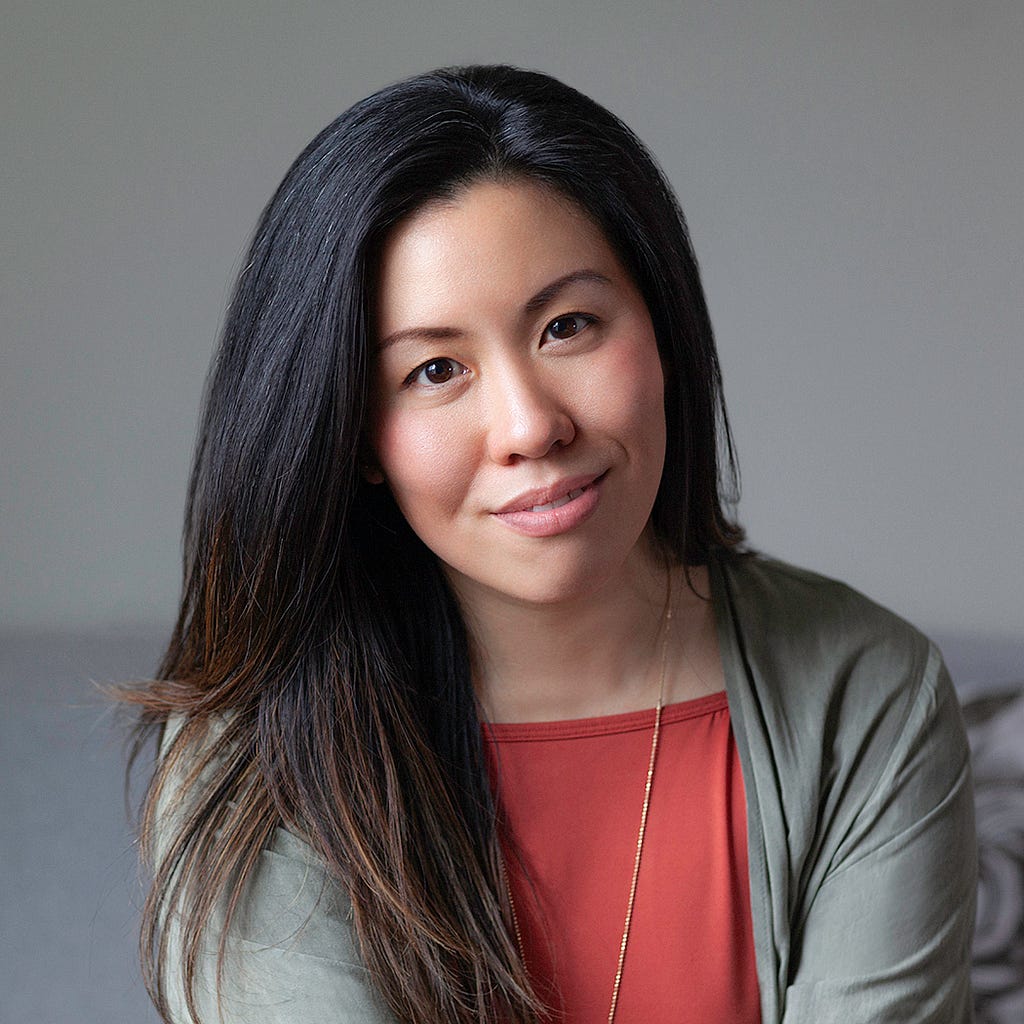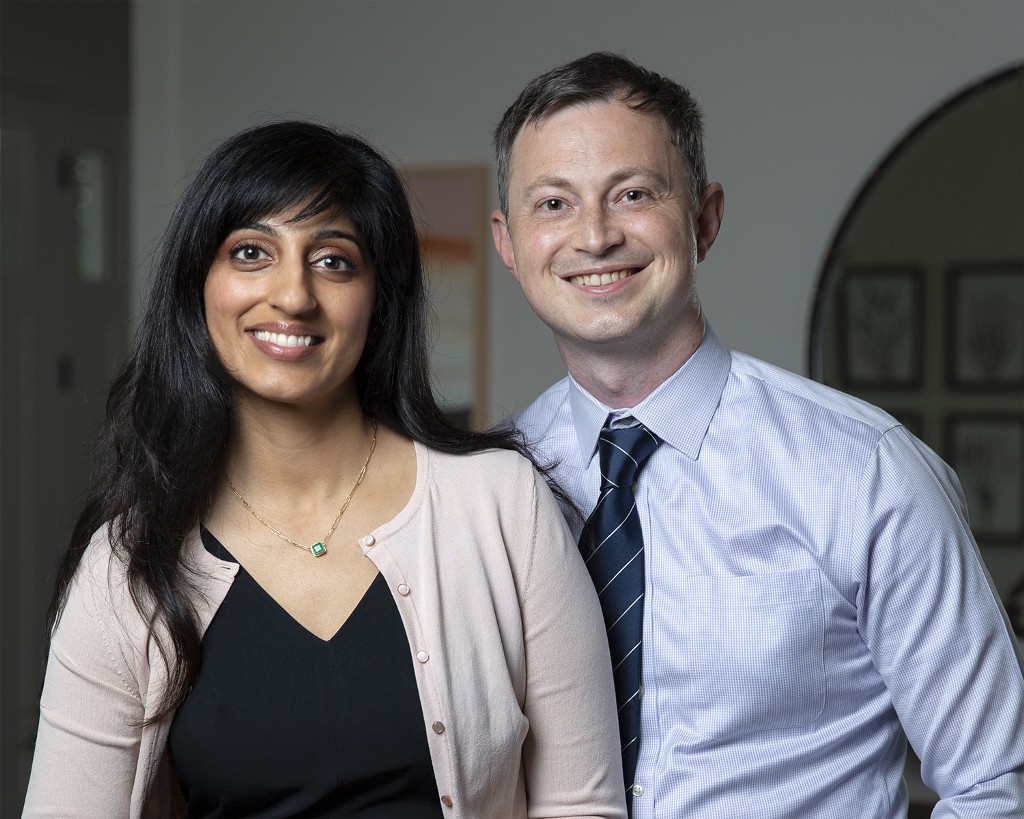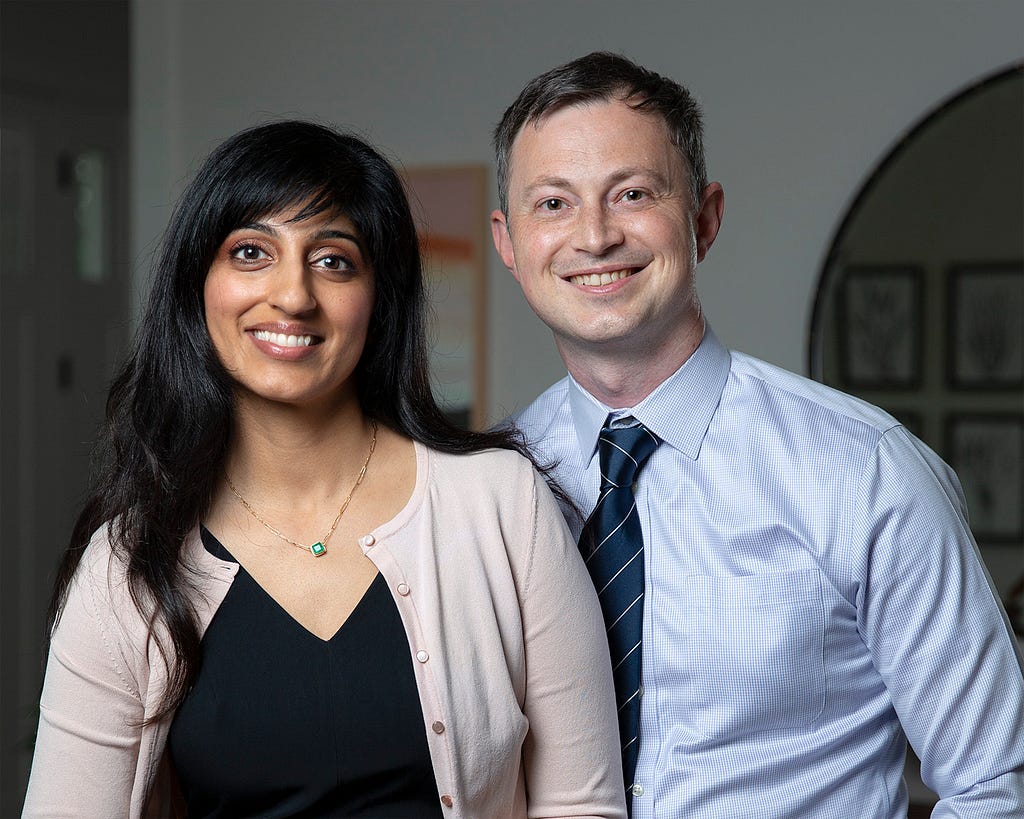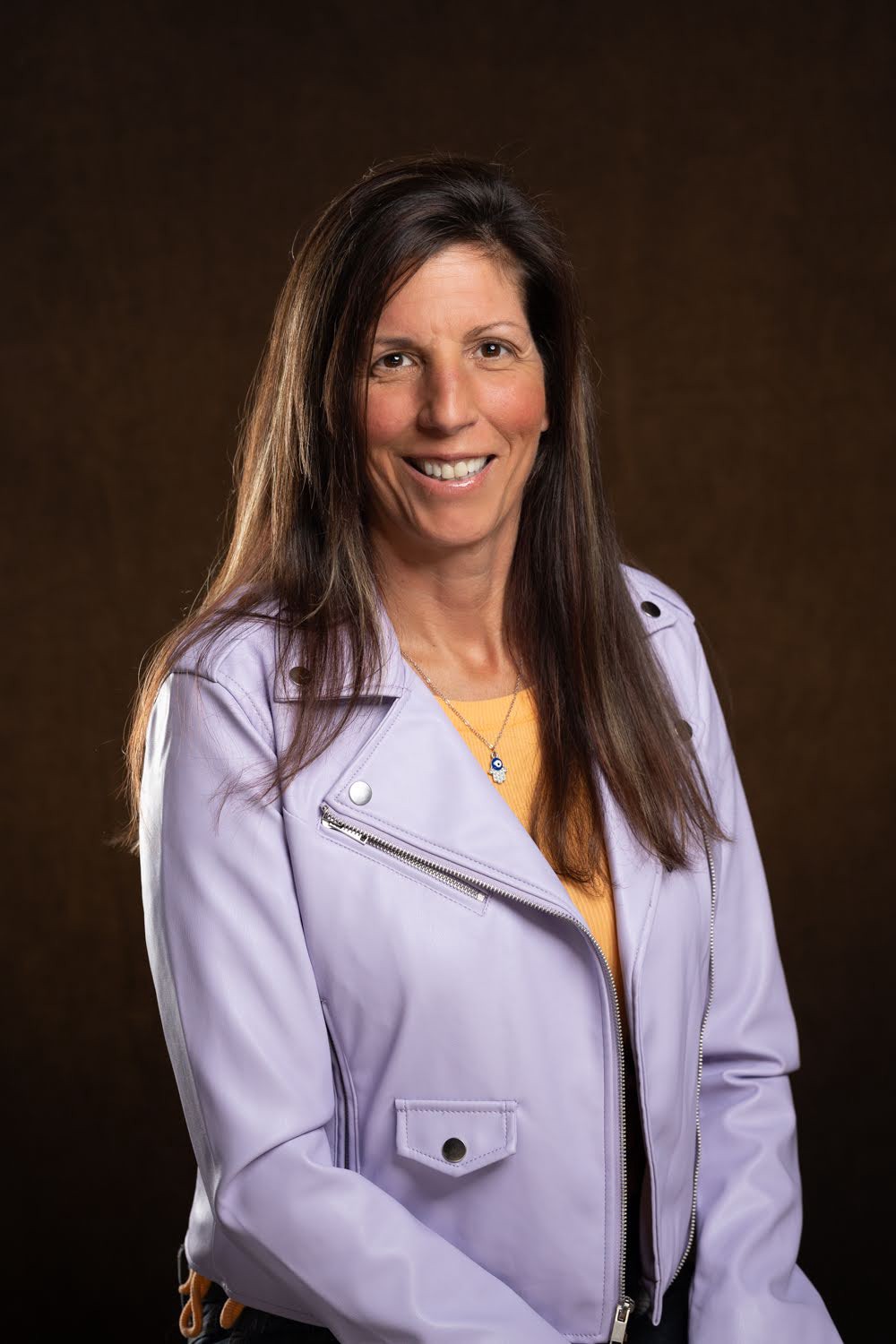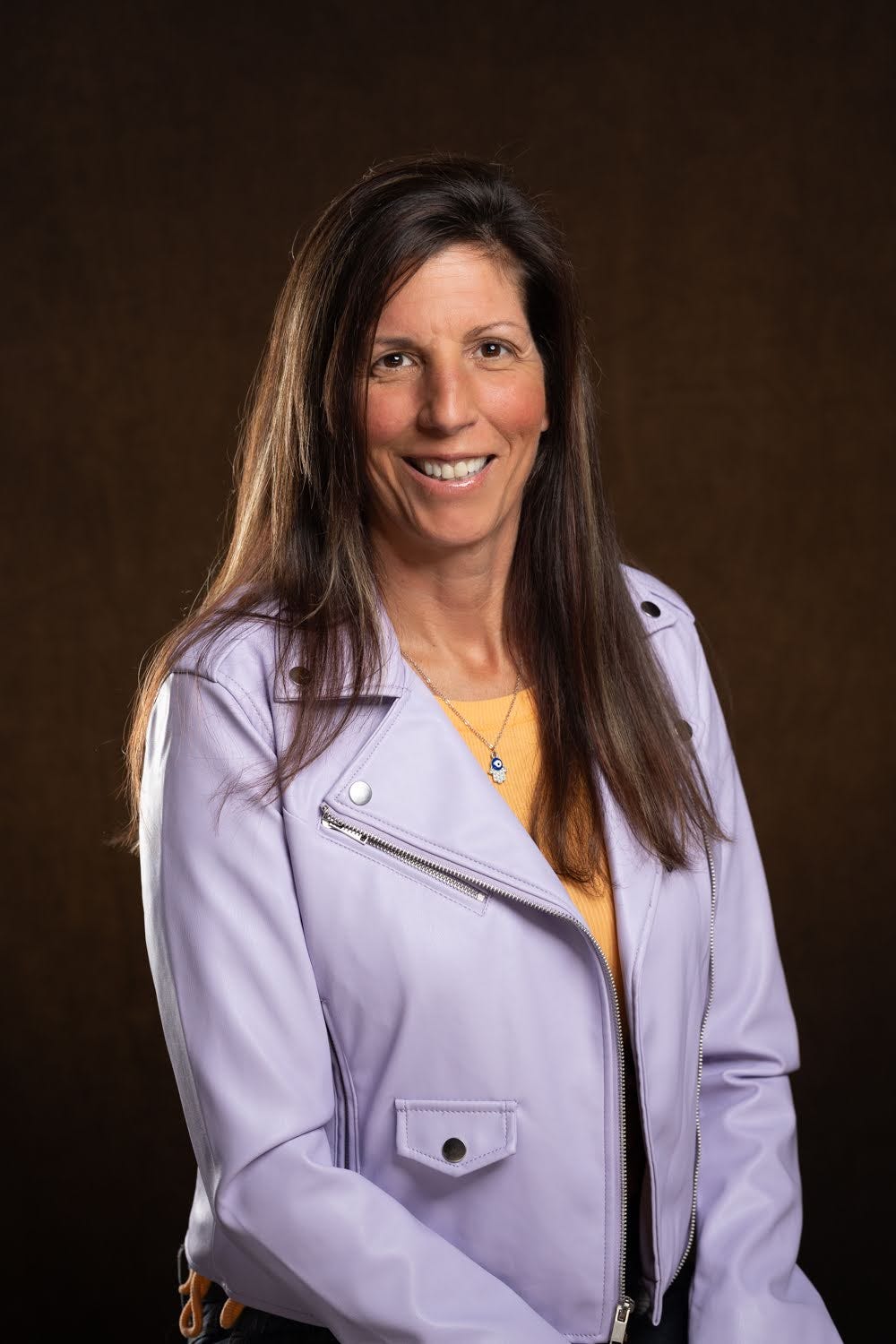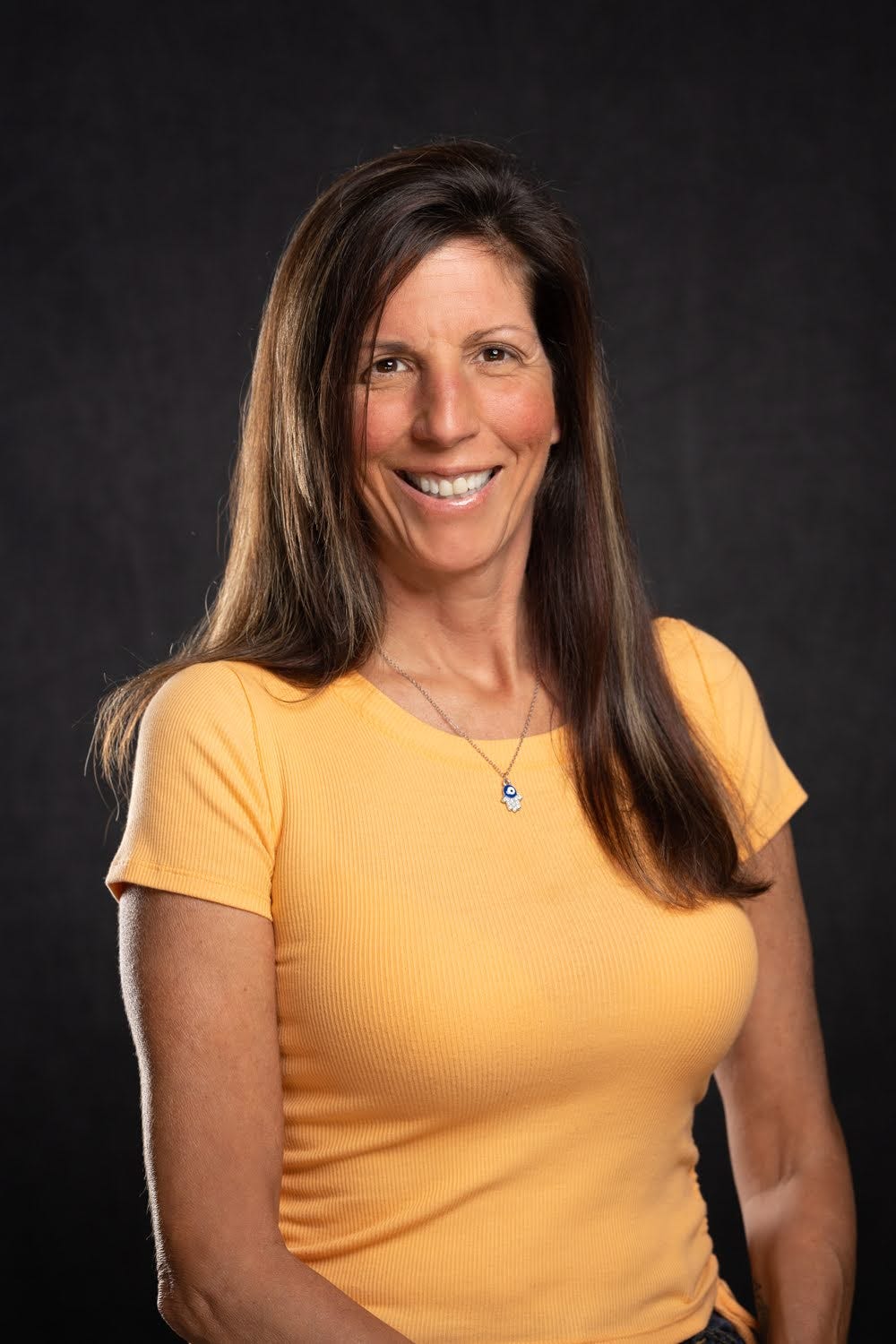Power Women: Fiona Taylor of Faces by Fiona On How To Successfully Navigate Work, Love and Life As A Powerful Woman
An Interview With Ming Zhao
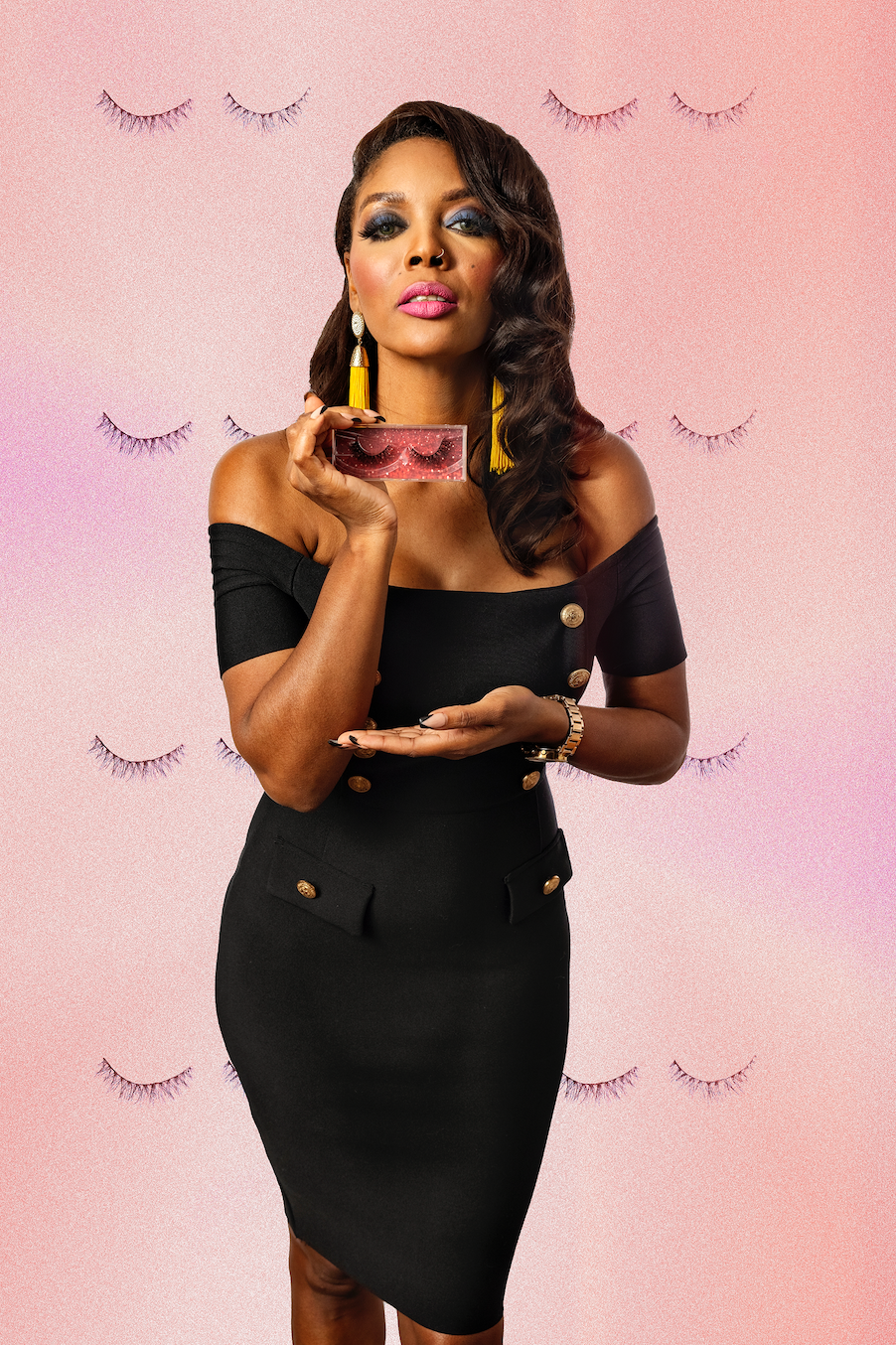
Thick Skin. Opinions from both men and women in our society can be difficult to navigate especially if they are rooted in jealousy, inexorable ideas or misogyny. You need to build confidence in yourself, let others opinions stay opinions, and make decisions based on your personal values and intentions.
How does a successful, strong, and powerful woman navigate work, employee relationships, love, and life in a world that still feels uncomfortable with strong women? In this interview series, called “Power Women” we are talking to accomplished women leaders who share their stories and experiences navigating work, love and life as a powerful woman.
As a part of this series I had the distinct pleasure of interviewing Fiona Taylor.
Faces by Fiona was founded by Fiona Taylor, a professional hair and makeup artist specializing in providing beauty services for discerning clients. Taylor has over a decade of experience in leading her business and is well-versed in enhancing clients’ natural beauty as well as transforming their looks for special events and occasions.
Early in life, Taylor became a professional model, which exposed her to the creative and captivating world of makeup artistry. She quickly realized the power that appearances can have in regards to confidence and the way others treat you. She fell in love with the industry and chose to attend Miami International University of Art and Design to study fashion design. While there, Taylor had the opportunity to partner with MAC Cosmetics, Sephora Brand, The Body Shop, and The Red Door Spa, all of which exposed her to insider secrets and allowed her to gain hands-on technical experience in the field. Taylor has also received training from Kerastase and R + Co.
Taylor’s background in the fashion and beauty industries informs her creativity daily and helps her keep up with ever-changing trends. Before ever crafting a look, Taylor strives to understand the desired theme, mood, and facial anatomy of each client, resulting in a cohesive final product.
In addition to being a skilled designer and makeup artist, Taylor’s vast experience has helped her develop excellent managerial skills. She is adept at coordinating large-scale shoots in fast-paced environments.
On the side, Taylor is currently developing Beluxxia Beauty, a line of bespoke beauty products designed to meet the unique needs of her clients. She will also release a bridal beauty e-book in fall 2022.
At the end of the day, Taylor is inspired by fearless women who want to rock their world with confidence and put aside what others think. Taylor’s passion lies in helping clients bring out the beauty that lies within so they can exude confidence, glamour, and regality.
Thank you so much for doing this with us! Before we dig in, our readers would like to get to know you a bit more. Can you tell us a bit about your childhood “backstory”?
I was born and grew up in Kansas City, MO. As a child I always found myself loving pretty, girly things. I remember completely obsessed with Barbie dolls and adored changing their clothing and hairstyles as well as mine all day! It was as if I was acting out a famous movie of my life.
My exposure to pagents was the first time I felt the energy and excitement of a glamour competition and the art of winning a crowd by using charm and feminine spiritness.
When it came to my teen years I enjoyed classes that taught about cooking and sewing and enjoyed making clothes for school projects and fashion studies.
I remember Halloween being one of my favorite times of the year. I would often dream about dressing up in character clothing and living within the persona of my creations. I soon began to be exposed to the idea of trends and fashion as I studied my peers throughout middle school and highschool. Perhaps like most teens, following trends were life goals! I enjoyed morphing into gothic, gaudy, preppy, girly and sporty interchangeably. Everyday has always been a good day for a transformation!
Throughout my life, I would describe my passion for trends as a constant craving for a new look that is fresh, dangerous and edgy. It gives me inspiration to be renewed in enjoying those transformations.
-Can you tell us the story about what led you to this particular career path?
I’ve always been enamored with the glamour world! My mother used to model and she took me along with her to a fashion show she walked in. I was also a child model during this show and was dolled up backstage by professional artists. The show’s excitement and fast paced beauty environment was mesmerizing! I know from that time, I felt a calling to that type of work.
I participated in child beauty pageants in the Midwest and decided to attend a model school which introduced me to the basics of etiquette, posing, and beauty hair and makeup for modeling. Although odd jobs came up along my journey as a young adult, modeling always allowed me to recenter and feed my passion for the beauty and fashion industries. From my experience modeling, I become interested in the creative intricacies of what makes an editorial look come together. I began to collaborate with photographers in the industry by modeling as well as a hair and makeup artist.
I proceeded to attend an art institute to study fashion design to develop a career in being an artist. Oftentimes I would find myself assisting in designing a clothing collection, organizing the company’s photoshoots and providing the beauty services. With each opportunity I was given, I flowed interchangeably between the different careers with the ultimate goal of learning how to manage having my own business. I looked at every job as an opportunity to learn from my mentors/bosses and develop strong business and creative strategies by learning my artistic craft and learning entrepreneurship.
After starting Faces by Fiona, one day I found myself decreasing my hours due to client demand at my full time job at a salon until eventually I needed to put my entire focus on developing and nurturing my own company.
Can you share the most interesting story that happened to you since you began your career?
Sure! I would say the most interesting story would be winning our most recent award of Best Beauty Team North Texas. This really opened my eyes to what can be achieved if you’re consistent and always strive for success. Paying attention to the customer and their needs is a must! They’ll tell you exactly what they need and hope they experience. This is how I planned my beauty essentials company! Listening to the needs of your clients will tell you how to grow your business.
You are a successful business leader. Which three character traits do you think were most instrumental to your success? Can you please share a story or example for each?
Dedication.
This has been the single most important trait that has influenced my choices and drive for achievement. Always having a goal in the back of mind of where I’m going, why I’m doing it, breaking down how I can do it, and the importance of my goals for the long run has led to personal growth and keeps me on the path to consistency. I have grown my business from being a freelance single beauty artist into a special event corporation.
Over time being determined has turned into training to level up my strengths. This in turn has spread confidence and empowerment to others! Seeking to provide the best possible techniques and services from that knowledge has been the aftereffect of my dedication.
Leadership
Having great leadership is more than being a boss. One needs to consider what great leadership is. Always leading by example has proven to be the best way to set expectations and a strong foundation for great management. In my business, I found myself developing strategies, dialogs, and the best work processes before teaching my methods to employees. I found that your business can only be as good as your standards. If you keep your standards high, you’ll have a better chance of attracting the best results.
Persistence
I’ve always held the notion that if you work hard at something and never give up, you’re bound to see the benefits of your hard work. This in turn has allowed me to push myself toward my dreams. Doing what it takes to get the job done brings forth the greatest reward. Not only does it allow you to align yourself on a narrow path, it allows you to gain knowledge, self confidence and self worth.
One example of this has been developing my strengths from what sets me apart from the competition. Paying attention to the reasons for my failures and having the ability to modify my actions is vital to success. I’ve had to evolve to the needs of my clients and break past certain mindsets that may have limited myself and potential. For example, starting with only beauty makeup and evolving my skills to include high level special effects for character transformations and advanced hairstyling.
Expanding my skill level has facilitated the needs of my customers.
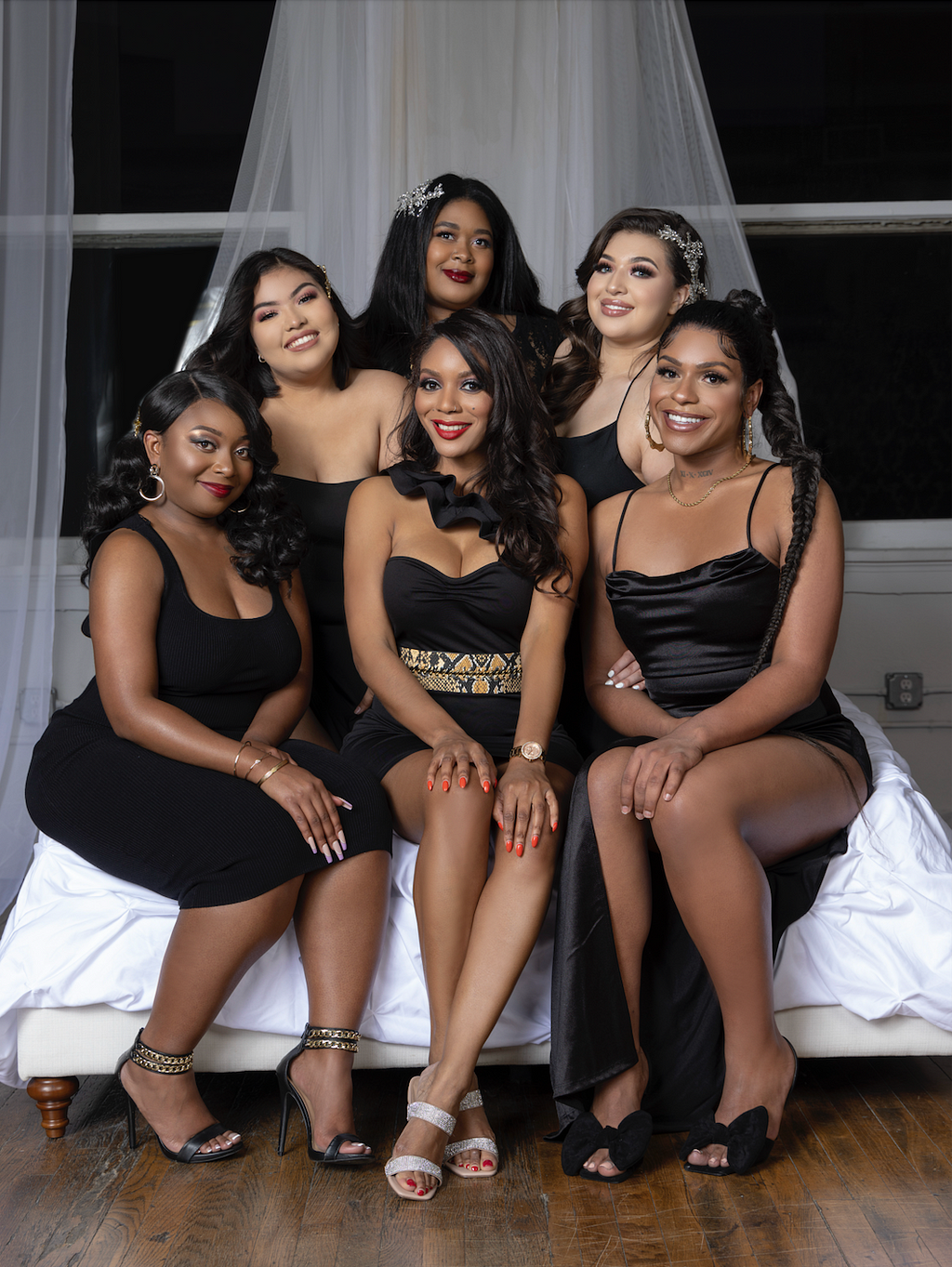
Ok, thank you for that. Let’s now jump to the primary focus of our interview. The premise of this series assumes that our society still feels uncomfortable with strong women. Why do you think this is so?
Change has always been uncomfortable but also inevitable. The idea of a strong woman may be intimidating since, historically, women have been looked after and sometimes held to a secondary role. I believe that people often think negatively about change until you can prove that it’s a good idea with tangible actions. I believe if more women take on strong roles in society it will be normalized overtime and inspire more women to take on leadership roles for the greater good of humanity.
Without saying any names, can you share a story from your own experience that illustrates this idea?
In my own experience I have encountered situations where my business has been ridiculed as vain, superficial, my accomplishments belittled, and even witnessed my two son’s being told what I do for work is out of balance with nature and God’s favor. Even though many women and men have benefited from the services I provide, my career has been looked at as something of a play time or hobby type of career.
Over time I realized those negative actions of other people towards my accomplishments and type of work may have been looked at as a threat and are based on their own insecurities of not living to their fullest potential and being in control. Logic has always compelled me to keep striving for success regardless of the insecurities of others. Sometimes insecurity in others plays a part in them denouncing something new to protect their comfort levels. Change will always test the boundaries of comfort.
What should a powerful woman do in a context where she feels that people are uneasy around her?
It may sound cliche but using feminine energy always softens the heart and instills peace. By showing compassion and kindness, while setting boundaries of intent by communicating facts backed up by reason will allow people to connect with you more easily and be respectful to your point of views. Coming with opinions based on emotion and unsurety will likely give others a reason to not take you seriously, be condescending and criticize your intentions.
As powerful women, we must always move with intelligence, grace, class and sass.
What do we need to do as a society to change the unease around powerful women?
I think the mindset and views around women and their values between leadership and feminine softness can be more balanced. If we appreciate strong qualities in women as well as their ability to be nurturing and caring, society would understand the need for celebrating those strong qualities.
We can start with focusing on women’s natural strengths and abilities rather than the norms of submissive historical roles. There appears to be an imbalance in history teachings when it comes to acknowledging prolific advancements by women.
Teaching in school about women’s important contributions related to politics, inventions, arts, and scholars would allow a better balance in perspective and comfort with women’s judgment and strengths. A modification in education by balancing women’s contributions as well as men’s would allow for a better balanced viewpoint.
In my own experience, I have observed that often women have to endure ridiculous or uncomfortable situations to achieve success that men don’t have to endure. Do you have a story like this from your own experience? Can you share it with us?
One story that seems to repeat itself is being viewed as unworthy of respect due to my physical appearance. Fortunately, I’ve found a way to make it work to my advantage in some instances.
As women we live in a world where our value is based on our physical attractiveness regardless of the intellect or abilities we have. I’ve been in a situation where the boundaries of comfort have been pushed because of physical attraction. Men have given me jobs only to try to date me or become sexually harassing overtime.
Although I’m extremely grateful for the learning opportunities and experiences I had working different jobs in the fashion and modeling industry, I’ve had to endure unwanted treatment. Those situations hindered being given advancement opportunities within the job due to declining their invitation to become intimately involved. I have had to walk away from a couple of jobs due to this. In hindsight it has helped my resume to have the job listed but it sometimes came with an uncomfortable experience.
In your opinion, what are the biggest challenges faced by women leaders that aren’t typically faced by their male counterparts?
-Physical attractiveness. By either not meeting those standards or by exceeding it brings a different challenge to women leaders. If a woman is looked at as unattractive, she is not taken seriously and any reason to find fault in her role and message is used against her. On the other hand, I noticed if physical attraction is there, reasons to be condescending, remarks of her not having education or knowledge on the subject are evoked and she may not be taken seriously.
-Using Motherhood as a weapon to be devalued. It’s very uncommon for men to be in a situation where being a father has diminished their ability to succeed or go after their career. There are ways that women can work and have a family and be successful! It has been thought of as excessive and an unnecessary expense when mothers try to go to school and go after their careers while having a family. She is often demonized for not caring for her family sensibly and neglecting her mother duties whereas men are not criticized for negligence.
There are logical and functional ways that women can have both a career and children that are raised happy and healthy. We could introduce more assistance to families, we’d have a higher functioning society due to having more skilled people in the workforce. Honestly with the cost of tuition I’m surprised more higher education campuses don’t have childcare with staffed care providers.
Let’s now shift our discussion to a slightly different direction. This is a question that nearly everyone with a job has to contend with. Was it difficult to fit your personal and family life into your business and career? For the benefit of our readers, can you articulate precisely what the struggle was?
The struggle I’ve personally experienced was finding childcare that accommodated the hours necessary for working. Also a balance in partnership in domestic home duties. Working together using respect and healthy awareness of balanced duties would be essential for achieving personal convictions and a great family life..
What was a tipping point that helped you achieve a greater balance or greater equilibrium between your work life and personal life? What did you do to reach this equilibrium?
One way I achieved greater balance is by scheduling out my life and balancing priorities. I brainstormed ways to solve problems rather than settling into what limitations I had before me. I prioritize my career goals and plan them out into daily, weekly, monthly and yearly segments. I found that the more I dissected my goals and planned them, the more I came up with solutions to achieve them.
One solution for me was hiring assistants on both the admin and artistry sides of my business. I could accomplish more when I delegated tasks so that my focus would be more fine tuned with higher calling duties and advancement for the business as well as allowing me to work within the hours that allowed me to have family time.
In the beginning of my business I found myself working literally all day everyday. Finding a balance was essential to my mental and physical health.
I work in the beauty tech industry, so I am very interested to hear your philosophy or perspective about beauty. In your role as a powerful woman and leader, how much of an emphasis do you place on your appearance? Do you see beauty as something that is superficial, or is it something that has inherent value for a leader in a public context? Can you explain what you mean?
I definitely believe that women in powerful roles should put a heavy emphasis on appearance. It is human nature to be drawn to balance, harmony and beauty. If women lead with their feminine allure as well as strong qualities, I think that they’d have a higher chance of winning support. It can be empowering to women to be beautiful and in a leadership position. I think there is strength in beauty and it could be used positively rather than objectively. In my experience working with female authors, attorneys, judges and public speakers, they have all exclaimed to want to look polished and beautiful. Having a polished look gives you more confidence and credibility in the eyes of others.
Women have always used beauty to feel confident, secure, and empowered. I think the issue has been whether beauty has been interpreted as unprofessional due to its attractiveness. Perhaps that is the reason it has been controlled to standards that are more conservative to diminish its powerful and captivating qualities.
How is this similar or different for men?
Men also need to look polished! I’ve worked with male political figures as well. Once again there is power in looking polished. A sense of dignity and dominance comes from looking your best.
Ok super. Here is the main question of our interview. Based on your opinion and experience, what are the “Five Things You Need To Thrive and Succeed as a Powerful Woman?” (Please share a story or example for each.)
- Thick Skin. Opinions from both men and women in our society can be difficult to navigate especially if they are rooted in jealousy, inexorable ideas or misogyny. You need to build confidence in yourself, let others opinions stay opinions, and make decisions based on your personal values and intentions.
- Conviction. You need to have a strong belief in your business and its values. Persuading others and leading with confidence will be a lot easier if you stick to your goals, ideas and values.
- Aptitude. You need to be able to be flexible in the ability to learn new techniques, knowledge, and processes to get to the next level. Leveling up and breaking past your own fears is essential for personal and business growth.
- Organization. Having a streamlined process of communication, standards, and workflow will allow you and your team to work functionally and efficiently.
- Support. Having a team of supportive people in your life and in your corner allows you to keep mental stability and balance so that you can live up to your potential and beyond.
We are very blessed that some very prominent names in Business, VC funding, Sports, and Entertainment read this column. Is there a person in the world, or in the US with whom you would love to have a private breakfast or lunch with, and why? He or she might just see this if we tag them.
Politician Stacy Abrams. She is a force to be reckoned with! I’d love to hear her personal testimony on her trials in tribulations being a powerful black woman in power and politics and how she worked hard to overcome them for the betterment of Georgia.
Thank you for these fantastic insights. We greatly appreciate the time you spent on this.
Power Women: Fiona Taylor of Faces by Fiona On How To Successfully Navigate Work, Love and Life As… was originally published in Authority Magazine on Medium, where people are continuing the conversation by highlighting and responding to this story.


